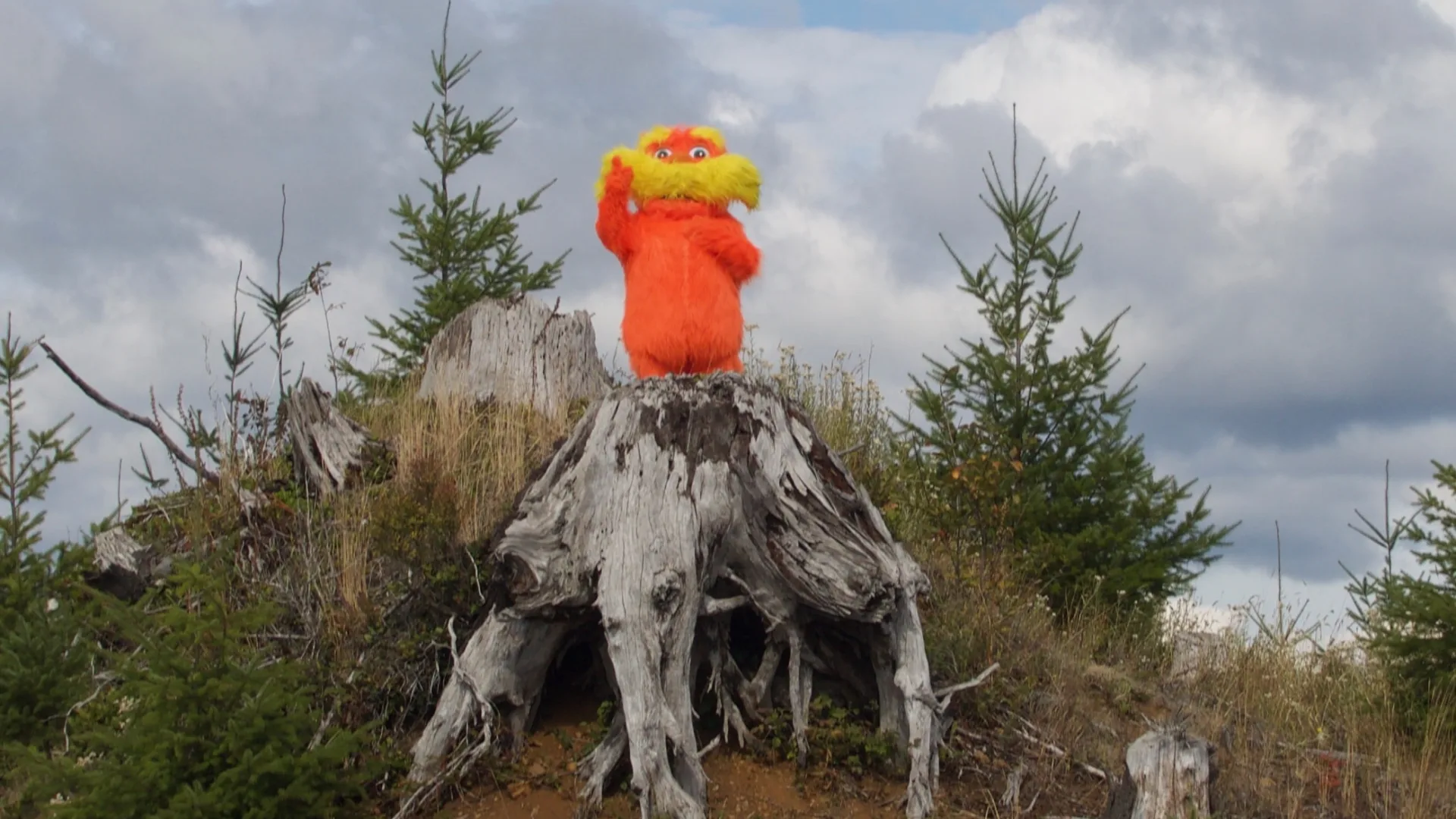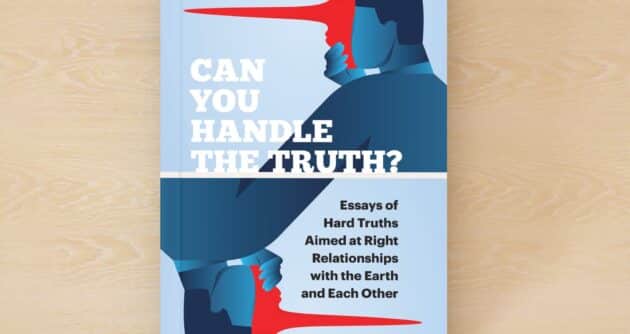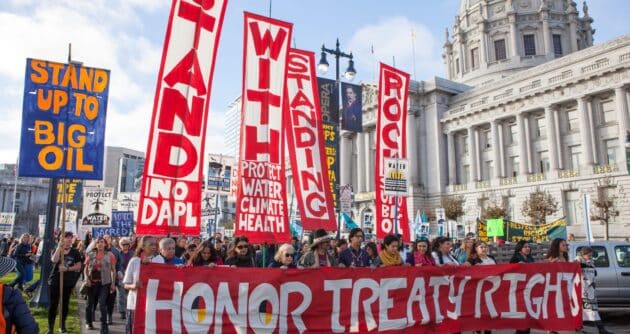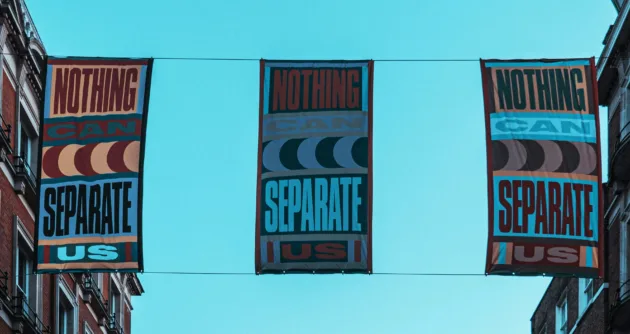Feature photo by Rio Davidson
“Congress shall make no law…abridging the freedom of speech… or the right of the people peaceably to assemble, and to petition the Government for a redress of grievances.”
This First Amendment to the U.S. Constitution is well understood to be the most significant legal right in any so-called free society. Without the freedom of the people and the press to exchange ideas and expose corruption, the idea and practice of democracy goes the way of the Truffula tree.
We are living in a time when we the people are witnessing more and more of our protected constitutional human rights eroded or taken away at an alarming rate, while also witnessing the expansion of “corporate rights”. As a passionate environmental activist and organizer, working for the recognition of the Rights of Nature, there is some irony and also more than a few “ah-ha” moments over the past decade while studying past history and living current history at the same time.

I grew up believing in the First Amendment and the values expressed in it. Throughout the decades, I thought my limited activism and my rights were genuinely protected by this critical amendment.
I protested and marched in Washington DC for the passage of the Women’s Equal Rights Amendment, I was challenged by local government when I placed a single political election sign in my yard (so instead I got a whole bunch of them and taped them to my garage door and all across the front of my house because that was “my property”) and when my son and his friend were almost hit by a car while riding their bikes, I petitioned for sidewalks on our street, which I lost, but I believed because I was “allowed” to collect my neighbors’ signatures and present them to city council, that somehow I was freely exercising my First Amendment rights.
A few more decades went by, and the issues kept coming and so did my understanding of the system. First, it was the issue of bow hunting deer within city limits, a law that city electeds adopted. This was actually the first time I was introduced to the Community Environmental Legal Defense Fund (CELDF) attorney Terry Lodge, although neither of us were aware of CELDF at the time. Again, I gathered facts and data, as all good activists do, and again used my free speech rights to share my knowledge with other residents and local government officials. This time I learned about our right as residents to revoke a law that the city council had passed. Again, this involved collecting signatures and placing a referendum of that law before the voters on a “real” election ballot. We exercised our First Amendment rights, and in this case, we won!
However, the stakes were much higher with the next community issue – the arrival of the oil and gas industry and the boom of hydraulic fracking. I had heard about “corporate rights” and of the Supreme Court case Citizens United related to campaign financing, but neither, to date, had touched me directly.
I soon came to discover that being unaware of how the system works, didn’t mean it hadn’t or couldn’t affect me. So once again, I began where all activists begin.
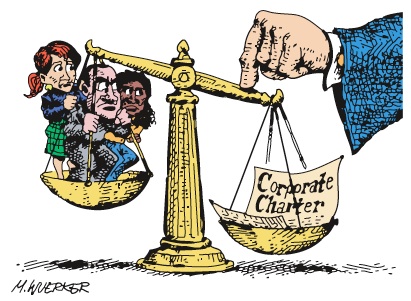
Researching information about the issue at hand, collecting data, and then going to those I presumed had the “authority” to deal with the issue and finding fellow community members also concerned along the way.
I worked for the local vocational school at the time during the day and did my research and citizen activism (scouring the internet, attending every council meeting, attending public hearings, scheduling meetings with inspectors, regulatory agencies, and attending conferences about fracking) at night or on weekends. The more I learned about the chemicals and the waste and that the supposed protection agencies weren’t doing any protection of the environment or the people, the more upset I got.
When I finally realized that none of the authority figures were going to do anything to protect my community, I decided to turn to the electoral process and run for office to become one of those authority figures. Watching a campaign from the sidelines is quite different than being one of the candidates….especially against a well-funded incumbent. I learned first-hand what that Citizens United case was all about, even in a small town local race. When I pulled up campaign finance reports, I understood how the money flows in for candidates supporting the corporate agenda and how much more “free speech” that can buy you in a campaign. I now understood that as the candidate wanting to protect nature, to speak for the trees, I could not buy enough mailers and advertisements to compete fairly with the candidate supported by the industry that will harm nature.
A bright side in a lot of moments of darkness was during this campaign someone asked me if I had ever heard of CELDF. I hadn’t and so I looked them up and I liked what I read, especially about our right to local self-governance.
Why shouldn’t the residents of the community get to decide if fracking happened here or not? Why did the state get to pass a law making it “illegal” for us to decide one way or the other if we wanted fracking?
Fast, Furious, and a Steep Learning Curve
After contacting CELDF and speaking with Ben Price on a conference call, a small group of local residents started meeting weekly to learn about how CELDF was assisting communities to resist and become resilient. Though the practice of local self-governance and recognizing nature as a living entity weren’t really new, they were new to us because in our land of so-called freedom and democracy, we had never been exposed to them.
CELDF had been instrumental in forming a small movement of people learning from the past and resurrecting these concepts and incorporating them into Western laws through direct citizen democracy. The goal is to breathe life back into these concepts, so we can use them as a legal tool to protect the people and nature in the communities where we live.
The lightbulbs in our minds flickered on and brightened the more we heard. Yes, we the people have the right to be the decision-makers in our community to decide if we want fracking or not. And we would use our democratic and constitutional rights to do this.
CELDF helped us draft a law that gave the people the right to say “no” and to also recognize the legal Rights of Nature in our community, affirming that fracking violated both the community’s and nature’s rights. A small group of volunteers started meeting and eventually went door-to-door with petitions in hand sharing these ideas with as many residents as possible.
Enter Dave Mansbery, a local resident who just so happened to be the owner of an oil/gas drilling company, and did not appreciate the sharing of ideas and information about the industry or a waste by-product of drilling he was marketing to the public as a harmless road deicer.
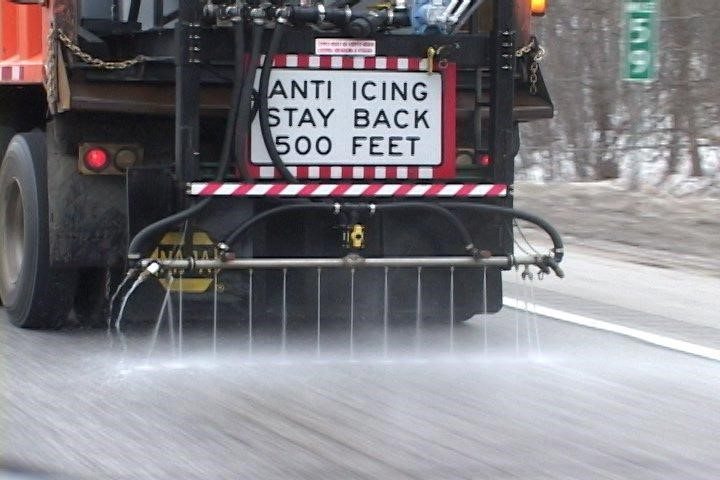
In March of 2012, he filed a Strategic Lawsuit Against Public Participation (SLAPP) against me and another resident working on stopping this by-product from being spread on local roads, claiming we were factually misrepresenting the nature of his deicer, AquaSalina. He was worried about his profits. The SLAPP suit is yet another tool that industry and corporations have to intimidate and stop citizens and activists. Dave Mansbery used this tool to silence our Free Speech and keep us from sharing critical information and ideas that people need to protect themselves. Such information, if made public, might impact profits, a priority routinely held in higher esteem than people and nature.
Regardless of the action to single out and bully a few of us, our community group forged ahead and collected the required signatures to qualify our law for the ballot. We won, with over 60% of the vote! Again, our belief in democracy and our rights were at an all-time high…but apparently what goes up must come down when you live in a corporate state.
Word spread quickly when two oil/gas drilling corporations, Bass Energy Inc. and Ohio Valley Energy Systems Corporation, sued the community claiming the law that the people had passed, violated their “rights”. Perhaps in 2023, it comes as no surprise that the courts ruled in favor of the drillers “rights” to profit over the people’s rights to democracy, but in 2013, it was like a sucker punch to the gut to all of us who had worked so hard for several years to get our law passed.

In addition, the court completely ignored nature’s rights and never even discussed them, keeping nature invisible in our legal system.
Despite what appeared to be gameover events, the seeds of the new idea of Rights of Nature and local self-governance had been planted in many minds both within my community and far beyond.
The Power of Ideas: How They Threaten the Status Quo
Of course, the court overturning my community’s people-passed law was an attempt to intimidate any other community from trying what we had done. Unfortunately for industry, the seeds had already begun to sprout in many other places. In Ohio, we saw one community after another pop up and start proposing similar laws…Athens, Youngstown, Yellow Springs, and Oberlin quickly followed. Then Kent, Columbus, Medina County, Gates Mills, Portage County, Athens County, Fulton County, and Toledo.
The powers that be were very threatened that the ideas of legal Rights of Nature and local self-governance were spreading and so the pushback became more aggressive and more authoritarian. First, they used the courts to keep some of these citizen-initiated laws off the ballot. When they found that too difficult and costly, the legislature then snuck language into an unrelated foreclosure bill granting authority to unelected bureaucratic boards of elections to use their “judgment” to keep procedurally qualified initiatives off the ballot. The courts of course now could set new precedents when these cases came before them.
When these first case decisions still didn’t stop communities from new attempts at passing Rights of Nature laws and county charters, the State Supreme Court found itself in the middle of a contradictory web of decisions that they had created. There were more dissenting opinions, the more cases that were brought.
Separation of powers, past precedent, and the people’s constitutional right to initiative were all discussed in these court decisions. A lot of ideas were being shared between the justices!

It was actually because of all the cases and contradictory decisions that the Lake Erie Bill of Rights got on the ballot in 2019, but that’s a story for another time.
Why Fighting for Our Constitutional Rights and Nature’s is So Important
“Restriction of free thought and free speech is the most dangerous of all subversions. It is the one un-American act that could most easily defeat us.”
William O. Douglas, U.S. Supreme Court Justice
So how exactly do protecting the community, nature, and free speech rights interconnect?
From residents being shut down from speaking about their concerns over oil/gas waste injection wells at a government public meeting, to a shareholder being escorted out and arrested at a Berkshire Hathaway shareholder meeting for voicing an opinion that Warren Buffett and others in charge apparently didn’t like, to the Ohio Supreme Court keeping citizen initiatives off ballots preventing voters from speaking through casting of ballots, to medical doctors who were not allowed to question the science provided by pharmaceutical corporations and government agencies, to college professors who are not even allowed to read from past published works without fear of losing their jobs, to journalists being censored and intimidated by social media corporations and elected officials and others even imprisoned like Julian Assange and then back to corporations filing lawsuits (SLAPP) against individual citizens, like myself—we have to ask what do these all have in common?

What they have in common is shutting down the exchange of ideas. Ideas that differ from the narrative that gets fed down to us from the top. Ideas that challenge the current status quo that protects the interests of the wealthiest minority, the 1%.
And yet because there are so many diverse situations and circumstances where this shutting down happens, it is hard to see it for what it is at times. The system through propaganda and media control even gets a segment of the people themselves agreeing with the shutting down of free speech.
When we add to the mix that we have been taught from childhood on to believe in democracy in our government, authority figures in our communities and country, justice in our courts and expert data from respected universities and regulatory agencies, it is easy to see why we get confused and doubt our own instincts and gut feelings when something seems off to us.
It is hard to fight an enemy who has outposts in your head.
Sally Kempton
Rights of Nature is a new idea in Western law and culture. Our federal and state constitutions recognize rights for humans and corporations, but not for nature. In our legal system, one is either a legal subject (humans and corporations) or a legal object (nature). A legal subject can “do” to a legal object (use it, damage it, even destroy it) and the legal object has no way to protect its interests. Of course, we have lots of rights codified and those rights are not absolute or guaranteed as many of us have learned firsthand. Rights conflict all the time between humans and between corporate “persons” too, it is why the courts have so many cases. But what having recognized rights can provide is a foot into the courtroom door and possibly “a seat at the table” and hopefully, a chance to adjudicate your position. This is what the current corporate “rights” holders fear. They would have another recognized entity challenging and fighting their actions as violating the rights of others.
It is why they will go to extreme measures to stop Rights of Nature from becoming law and will even do so unconstitutionally. For example, in Ohio, after Toledo voters approved the Lake Erie Bill of Rights in 2019, big business interests decided this must be prohibited from happening again. How did they do this…by the Ohio Chamber of Commerce drafting a preemptive law against Rights of Nature and having a legislator sneak it into the budget bill right before the legislature voted…slamming the courtroom door shut on nature and the people wanting to speak for nature!
Language inserted into the spring 2020 Ohio budget:
Nature or any ecosystem does not have standing to participate in or bring an action in any court of common pleas. No person, on behalf of or representing nature or an ecosystem, shall bring an action in any court of common pleas. No person shall bring an action in any court of common pleas against a person who is acting on behalf of or representing nature or an ecosystem. No person, on behalf of or representing nature or an ecosystem, shall intervene in any manner, such as by filing a counterclaim, cross-claim, or third-party complaint, in any action brought in any court of common pleas.
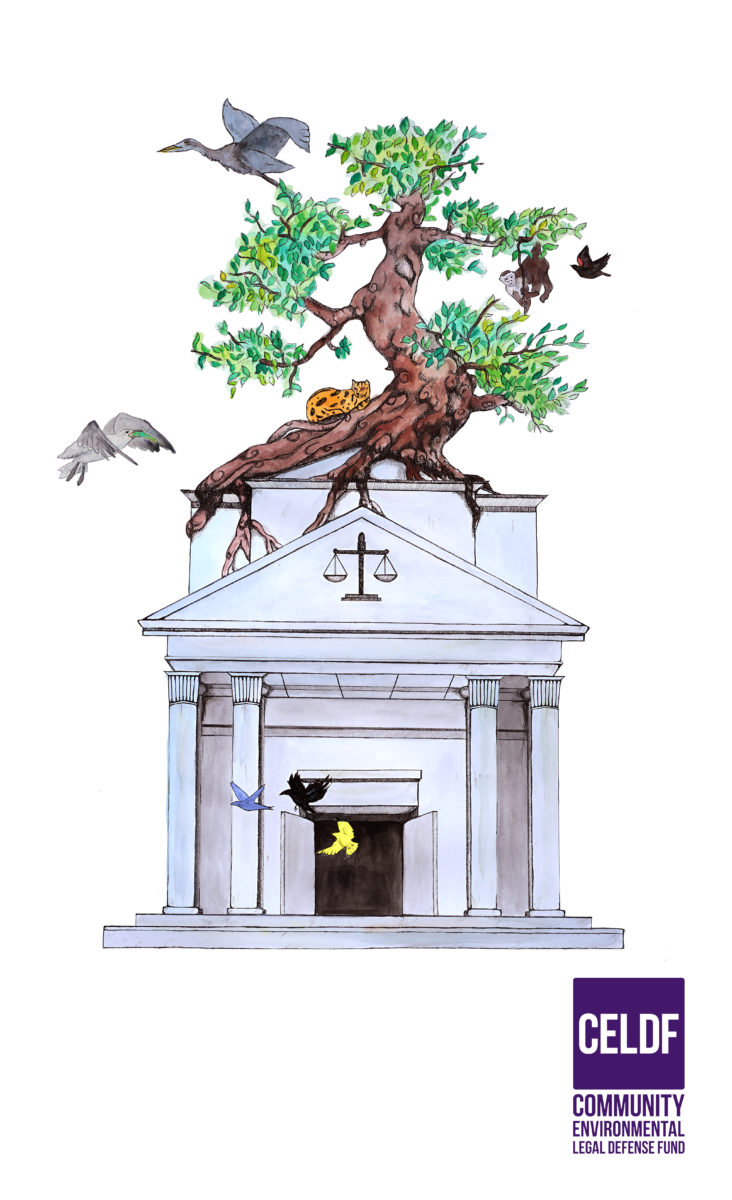
You can’t pass a law prohibiting what can or can’t be raised in court. Not only does this close the courts to people desirous of having nature recognized as an entity deserving protection in its own right, but the legislature has curbed the judge’s speech and ability to deliver comprehensive justice. There must not be limits imposed on what arguments and ideas can be raised through the courts. That statute is unconstitutional on its face. The legislature cannot unilaterally pass a law denying nature its rights, period.
Just as abolition, women’s suffrage, the right to privacy, gay marriage, and other issues all started out as an idea to be shared; they morphed through dialogs, debates, protests, actions, and even court cases and turned into more. It is why the status quo wants and needs to quash any sharing of the “new” idea of Rights of Nature. It is why it is so important to fight and protect our first amendment rights to free speech and free press and then to codify this new idea into our laws and constitutions. It is why I decided to challenge the SLAPP lawsuit and court decision filed against me a decade later. If we don’t fight for our rights and Nature’s Rights, who will? If we don’t, and the result is our speech is silenced, who then will be left to speak for the trees?
Additional supporting articles
https://www.pbs.org/newshour/politics/experts-say-attacks-on-free-speech-are-rising-across-the-us
https://www.hrw.org/news/2021/02/11/covid-19-triggers-wave-free-speech-abuse
